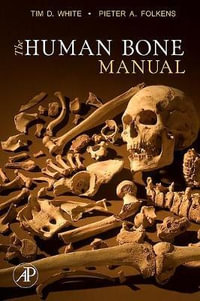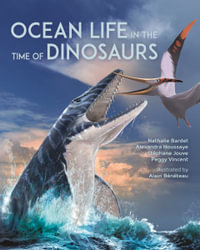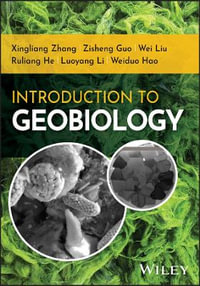Understanding the complex interplay of physical and chemical processes leading to fossilization is crucial to elucidating the 3800 million years of life on earth. And yet, the process of fossilization also leads to the loss of pivotal biological information, placing constraints on the very same understanding of ancient life it preserves. Over the last decade, however, remarkable advances in approaches, techniques, tools, and instrumentation have helped scientists to transcend these constraints by enabling high-resolution analysis of fossil material even down to the nanoscale.
Fossilization provides a critical look at these cutting-edge innovations in the science of fossil preservation and provides a road map for future research. Drawing from the fields of paleontology, organic and inorganic chemistry, microbiology, and high-resolution imaging and analysis, and spanning the diversity of life from plants to vertebrates and invertebrates, this resource details expert findings on
- fossilization of hard and soft part tissues in dinosaurs
- high-resolution chemical analysis of organic and inorganic tissues
- arthropods preserved in amber
- experimental silicification of wood
- chemical defenses and color in fossil plants
- confocal Raman spectroscopy
- microprobe analysis
- radioisotopic studies
- and much more
A true interdisciplinary undertaking, the book is authored by paleontologists, mineralogists, geochemists, organic chemists, microbiologists, and materials scientists who have worked together to investigate questions around substance fossilization and the limits of the fossil record. A special color section contains SEM, Raman, and other striking images of vertebrates, invertebrates, and plants.
Fossilization is a trailblazing reference book for research scientists and specialists in related fields, as well as for advanced undergraduates and graduate students interested in fossilization, emerging research techniques, and fresh approaches in the analysis of plant and animal fossils.
About the Authors
Carole T. Gee is an associate professor of paleontology at the University of Bonn. She is the editor of
Plants in Mesozoic Time: Morphological Innovations, Phylogeny, Ecosystems.
Victoria E. McCoy is a visiting assistant professor of paleontology at the University of Wisconsin–Milwaukee.
P. Martin Sander is a professor of vertebrate paleontology at the University of Bonn. He is the coeditor of
The Microstructure of Reptilian Tooth Enamel: Terminology, Function, and Phylogeny and, with Gee,
Biology of the Sauropod Dinosaurs: Understanding the Life of Giants.
Industry Reviews
"This well-written and well-edited volume, which is full of beautiful illustrations, describes exciting areas of fossilization while providing a guide for anyone wanting to apply some of the new techniques or look at emerging areas. Incorporating cutting-edge and revised techniques, this book will interest paleontologists, paleobotanists, and students, as well as general readers."
— David Winship Taylor, Indiana University Southeast, coeditor of Flowering Plant Origin, Early Evolution & Phylogeny
"An exciting, novel contribution to the paleontological literature written by experts who have done groundbreaking research. There really is no comparable work."
— Hans-Dieter Sues, National Museum of Natural History, Smithsonian Institution, author of The Rise of Reptiles
"Showcasing knowledge acquired and techniques developed in the past few decades that have given us greater understanding of the processes and mechanics of fossilization, this book is full of cutting-edge, highly original research. A useful and attractive text for paleontologists, mineralogists, biochemists, and paleomicrobiologists, Fossilization will be a standard reference for years to come."
— Christopher A. Shaw, Idaho Museum of Natural History / ArcheoPaleo Resource Management, Inc., coeditor of Smilodon: The Iconic Sabertooth

























